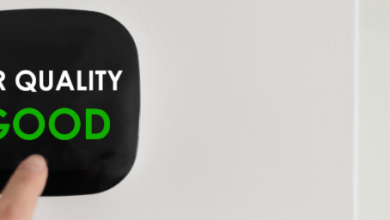Humidity and Air Conditioning Problems (Bad Hair Days & More)

Humidity plays a significant role in indoor comfort, especially when it comes to air conditioning. High humidity levels can exacerbate air conditioning issues, leading to discomfort and frustration. In this article, we’ll explore the relationship between humidity and air conditioning problems, as well as effective solutions to address them.
Understanding Humidity and Its Effects on Air Conditioning
Humidity refers to the amount of moisture present in the air. High humidity levels can make indoor spaces feel warmer and more uncomfortable, even when the temperature is relatively low. When humidity levels rise, air conditioning systems must work harder to maintain a comfortable indoor environment, leading to increased energy consumption and potential performance issues.
Common Air Conditioning Problems Caused by High Humidity
High humidity can pose several challenges for air conditioning systems, including:
1. Reduced Cooling Efficiency
- High humidity levels make it harder for air conditioners to remove heat from indoor spaces, reducing their overall cooling efficiency.
2. Increased Energy Consumption
- Air conditioners operating in high humidity conditions consume more energy to maintain desired indoor temperatures, leading to higher utility bills.
3. Moisture Buildup
- Excess moisture in the air can lead to condensation and moisture buildup within air conditioning units, increasing the risk of mold and mildew growth.
4. Poor Air Quality
- High humidity levels can promote the growth of mold, mildew, and bacteria in air conditioning systems, compromising indoor air quality and posing health risks.
Impact of Humidity on Personal Comfort
Beyond its effects on air conditioning systems, high humidity can also impact personal comfort and well-being. Common discomforts associated with high humidity include:
- Sticky, Clammy Skin
- Difficulty Breathing
- Increased Fatigue
- Poor Sleep Quality
- Frizzy Hair (The Infamous “Bad Hair Days”)
Tips to Address Humidity-Related Air Conditioning Issues
To mitigate humidity-related air conditioning problems and improve indoor comfort, consider the following tips:
1. Use a Dehumidifier
- Install a dehumidifier to reduce indoor humidity levels, especially in areas prone to moisture buildup such as basements and bathrooms.
2. Ensure Proper Ventilation
- Proper ventilation helps circulate air and reduce humidity levels. Use exhaust fans in kitchens and bathrooms, and open windows when weather permits to promote airflow.
3. Maintain Your Air Conditioning System
- Regular maintenance of your air conditioning system, including cleaning or replacing filters and checking for leaks, helps ensure optimal performance and efficiency.
4. Seal Air Leaks
- Seal gaps and cracks around windows, doors, and ductwork to prevent outdoor humidity from infiltrating indoor spaces.
5. Invest in Energy-Efficient Air Conditioning
- Consider upgrading to an energy-efficient air conditioning system that is designed to handle high humidity conditions more effectively.
Benefits of Maintaining Optimal Indoor Humidity
Maintaining optimal indoor humidity levels offers several benefits, including:
- Improved Indoor Comfort
- Reduced Energy Costs
- Enhanced Air Quality
- Prevention of Mold and Mildew Growth
- Healthier Living Environment
Conclusion
Humidity can pose significant challenges for air conditioning systems, leading to reduced efficiency, increased energy consumption, and discomfort. By understanding the effects of humidity on air conditioning and implementing effective solutions, you can improve indoor comfort and maintain a healthier living environment.
FAQs
- Can high humidity cause my air conditioner to freeze up?
- Yes, high humidity can contribute to moisture buildup within the air conditioning unit, leading to ice formation and potential system malfunctions.
- How can I tell if my indoor humidity levels are too high?
- Signs of high indoor humidity include condensation on windows, musty odors, and discomfort, such as sticky skin and difficulty breathing.
- Is it necessary to run a dehumidifier in addition to my air conditioner?
- In humid climates or during humid seasons, running a dehumidifier alongside your air conditioner can help maintain optimal indoor humidity levels and improve comfort.
- Can air conditioning problems caused by humidity be fixed without professional help?
- While some humidity-related air conditioning issues can be addressed through DIY methods, it’s advisable to consult a professional HVAC technician for complex problems or system maintenance.
- What is the ideal indoor humidity level for comfort and health?
- The ideal indoor humidity level is typically between 30% and 50%. Maintaining this range helps promote comfort, reduce allergens, and prevent moisture-related issues




